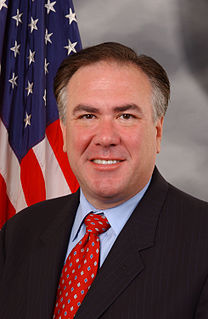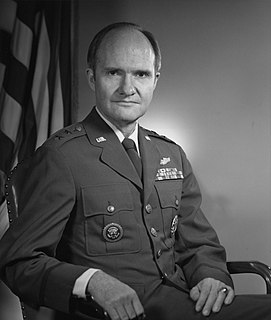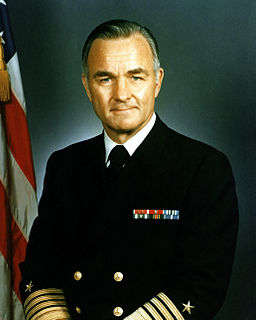A Quote by Kate Adie
But in the first Gulf war the United Kingdom was not under any threat from Iraq, and is still less so in the second one. Then there is no justification for obstructing freedom of information, particularly as nations have a right to know what their soldiers are being used for.
Related Quotes
Regime change has been an American policy under the Clinton administration, and it is the current policy. I support the policy. But regime change in and of itself is not sufficient justification for going to war--particularly unilaterally--unless regime change is the only way to disarm Iraq of the weapons of mass destruction pursuant to the United Nations resolution.
I voted against the war in Iraq. I voted against the first Gulf War. I think war is the last resort - the last option of a great military power like us. I think that we need to focus on building coalitions. Yes, ISIS must be destroyed. But it should be destroyed by a coalition of Muslim nations on the ground with the support of the United States and the other major powers in the air and in training the troops there.
We have a much bigger objective. We've got to look at the long run here. This is an example - the situation between the United Nations and Iraq - where the United Nations is deliberately intruding into the sovereignty of a sovereign nation.... Now this is a marvelous precedent (to be used in) all countries of the world.
The invasion of Iraq will surely go down in history as one of the most cowardly wars ever fought. It was a war in which a band of rich nations, armed with enough nuclear weapons to destroy the world several times over, rounded on a poor nation, falsely accused it of having nuclear weapons, used the United Nations to force it to disarm, then invaded it, occupied it, and are now in the process of selling it.
The U.N. [the United Nations Working Group on Arbitrary Detention] has looked into this whole situation. They spent eighteen months in formal, adversarial litigation. [So it's] me and the U.N. verses Sweden and the U.K. Who's right? The U.N. made a conclusion that I am being arbitrarily detained illegally, deprived of my freedom and that what has occurred has not occurred within the laws that the United Kingdom and Sweden, and that [those countries] must obey. It is an illegal abuse.
I really see the U.S. staggering under the burden of three blows. One is 9/11 and the threat of terrorism, which is still huge in Syria, Iraq, and elsewhere. The second is the failed 2003 war in Iraq, which cost so much and ruined America's credibility in the eyes of so many. Obama has repaired it to some extent, but those scars are deep. And then, thirdly, banks failed, the whole real estate market had the carpet pulled out from under it.
To have two Legislative Assemblies in the United Kingdom would, in my opinion, be an intolerable mischief; and I think no sensible man can wish for two within the limits of the present United Kingdom who does not wish the United Kingdom to become two or more nations, entirely separate from each other.

































